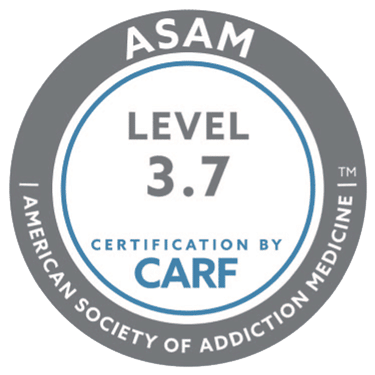Stimulants are drugs that increase CNS (central nervous system) to make you more alert and boost your cognitive functions.

Every day, millions of people use stimulants such as caffeine in coffee or nicotine in cigarettes.
More than 94,000 people older than 18 received stimulant addiction treatment in 2020.
Some stimulants, such as Ritalin and Adderall, can be prescribed as medication to treat disorders like bipolar disorder, Attention Deficit Hyperactivity Disorder(ADHD), etc. Other stimulants, such as methamphetamine and cocaine, are used illegally.
Due to their effects of increasing energy, improving concentration, and enhancing performance as a result of greater norepinephrine concentration, many people are tempted to abuse prescription stimulants or prescription drugs.
Stimulants also cause elevated levels of dopamine, which induces feelings of pleasure and euphoria. This “high” is more intense yet short-lived with illicit stimulants.
Continuous abuse of stimulants can create physical dependency as the body is no longer able to produce the chemicals on its own and needs to receive them from an external drug otherwise it’ll exhibit withdrawal symptoms.
Abusing stimulants can turn into addiction over time as the drugs start to cause distress and negatively affect people’s lives.
Stimulant drug addiction treatment is necessary because it can result in immediate and long-term effects on an individual’s health. Stimulants range extremely widely in potency, so their side effects can also range from mild insomnia to psychosis or even death.

Why Does Stimulant Addiction Happen and How To Recognize It
Stimulants are a vast selection of legal and illegal substances, both of which can cause addiction. Even when stimulants are legally prescribed, a person can misuse them for nonmedical purposes.
People can become addicted to stimulants due to several reasons and many symptoms/signs can serve as giveaways to a stimulant addict. Below is an explanation for each of these.
Causes of Stimulant Addiction
Because stimulant drugs increase dopamine and norepinephrine levels in the brain, they’re abused with various intentions in mind.
Some people want the increased alertness and elevated energy levels associated with stimulants, while some people want to enhance their performance for a certain activity or obligation. Other people are after the pleasurable sensation of euphoria that’s more closely linked to illicit stimulants.
The causes of stimulant addiction are a complicated and diverse matter, with both environmental and genetic factors playing a part in the problem.
For example, people with family members who are stimulant abusers are more likely to do the same. Also, people who are under a lot of pressure such as students or workers are more likely to experience stimulant use disorder.
As such, identifying risk factors can be beneficial to determine the causes of stimulant addiction. These include:
- Poverty
- Constant exposure to high stress
- Unemployment
- High expectations or overwhelming demands placed on a person
- Personal history of violence, trauma, substance abuse, or psychiatric illness
- Family history of drug abuse or mental sickness
- Easy access to prescriptions for stimulant medications
- Exposure to peers who use stimulants
In addition to these risk factors, stimulant misuse can happen when the drugs are not taken as prescribed.
For example, taking more than the prescribed dose, taking the drug more frequently than indicated, or taking the drug for a longer duration than outlined.
Taking stimulant medication prescribed for another person and using stimulant medication for its effects instead of its medical purpose can also lead to abuse and addiction. This addiction can have devastating cardiovascular consequences

Symptoms and Signs of Stimulant Addiction
Stimulants produce several desirable effects such as improved concentration, enhanced self-esteem, prolonged alertness, suppressed appetite, and increased physical activity.
However, stimulants can also cause serious adverse effects, especially if you misuse or abuse them.
Symptoms of stimulant addiction can be both physical, behavioral, and psychological as follows:
- Restlessness
- Hyperactivity
- Mood swings
- Loss of appetite
- Impulsive or risky behaviors
- Dilated pupils
- Jitteriness and twitches
- Excessive sweating
- Hair loss
- Weight loss
- Increased blood pressure
- Rapid heartbeat
- Racing thoughts
- Aggression
- Outbursts of anger
- Hyperfocus
- Anxiety
- Depression
- Confusion
- Increased self-confidence
- Increased sensory awareness
- Poor decision-making and judgment
- Paranoia
- Delusions
- Hallucinations
- Flight of ideas
- Lying, stealing, or other deceptive behavior
- Going to multiple doctors to score more prescriptions
- Looking online for stimulants out of prescription
As for the signs of stimulant addiction, these include:
- A strong craving or urge to use stimulants that make it impossible to focus on anything else.
- Wanting to stop taking stimulants but failing to do so.
- Becoming less socially involved and giving up hobbies and activities to use stimulants.
- Spending a lot of time trying to obtain, use, and recover from stimulants.
- Taking stimulants despite compromising your ability to fulfill responsibilities at home, work, or school.
- Continuing to take stimulants despite this causing physical harm or interpersonal/social problems

What Are the Treatment Options for Stimulant Addiction?
Selecting the right approach to treat stimulant addiction depends on the type of substance and the severity of the addiction. Here are the most common substance abuse treatment options to consider:
Medical Detoxification
Detox is the process of decreasing and stopping the stimulant dose for the patient. The type of stimulant used affects how long it takes to detox.
Due to the severe and potentially life-threatening withdrawal effects of stimulant detoxification, it must be done under medical supervision.
Medication-Assisted Treatment
Some medications, such as Bupropion, Modafinil, and Dextroamphetamine, can help alleviate stimulant withdrawal symptoms.
They can reduce insomnia, anxiety, and depression among other symptoms, but they also must be administered under medical supervision.
Behavioral Therapy
This aspect of treatment is crucial for maintaining recovery. It includes the following evidence-based types of therapy:
- Cognitive behavioral therapy: aims to help patients process feelings/thoughts and understand how they relate to addiction.
- Contingency management: aims to find motives to rectify behavior.
- Motivational interviewing: aims to boost motivation for change.
Support Groups
To ensure you or your loved one stays on the recovery track, aftercare measures must be arranged.
These include 12-step support programs similar to AA (alcoholics anonymous) and non-12-step support programs such as:
- Individual counseling
- Group therapy
- PHP programs
- Family therapy

Final Thoughts
Stimulant addiction is growing at an alarming rate. It can lead to dangerous short and long-term adverse effects, including seizures, kidney damage, and cardiac arrest.
If you or anyone you know shows symptoms/signs of stimulant addiction and needs help in their journey to recover from addiction, please don’t hesitate to reach out.
Starting stimulant addiction treatment is the only way to get your life back on track. It can be quite difficult at times, but realizing your better self is worth it.
FAQ
How long does stimulant addiction treatment last?
How can I support a loved one who is struggling with stimulant addiction?







